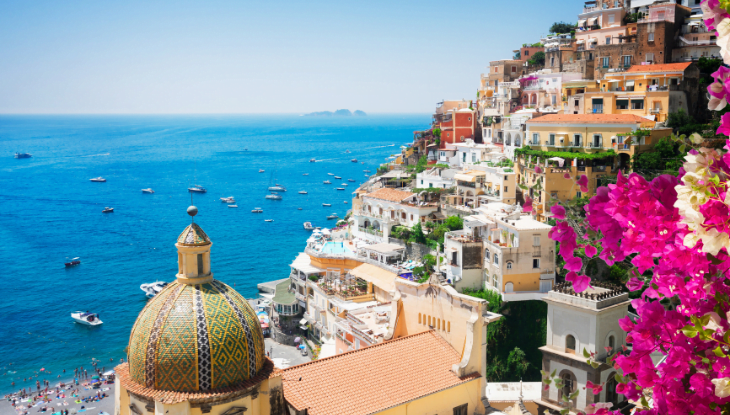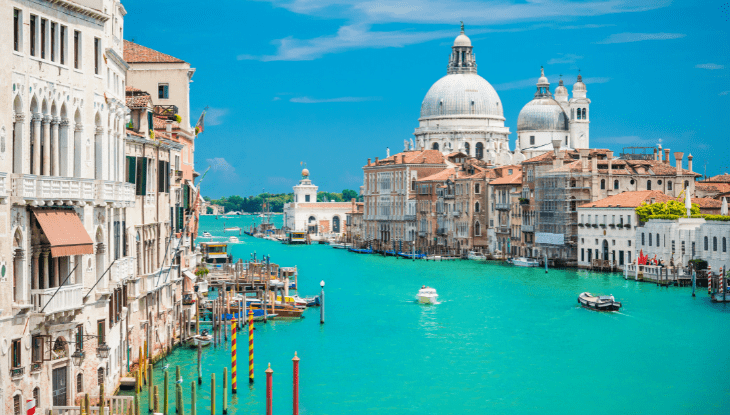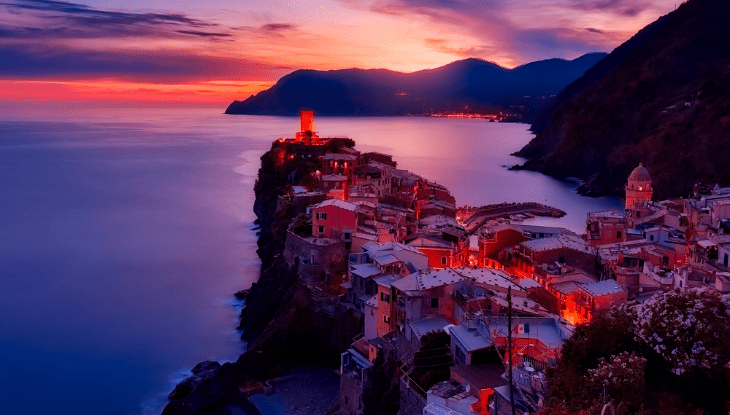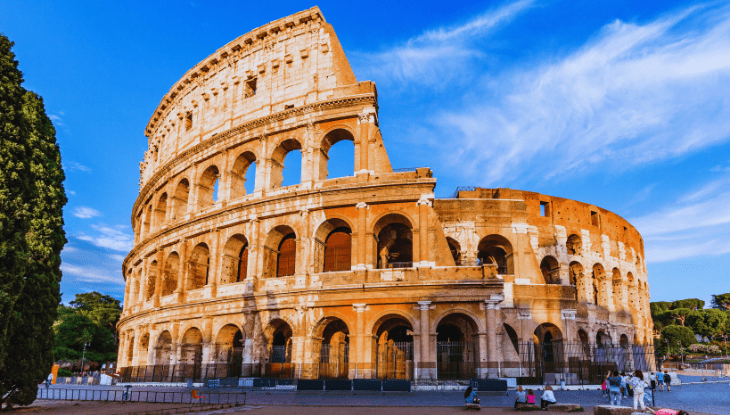How to buy an apartment in Italy. Italy, with its picturesque landscapes, rich culture, and exquisite cuisine, attracts people from all over the world. Many wonder how to buy a house in Italy?
In this article, you will learn how to buy a flat in Italy. How much it may cost and whether it is worth investing in the Italian property market. So get ready for a comprehensive look at the process of buying a flat in the heart of Europe.
Why is it worth it and how to buy an apartment in Italy?
Buying a property in Italy opens doors to a life that many can only dream of. Italy, with its unique blend of culture, history, and nature, offers not just a place to live, but also a chance to experience the daily magic of this country.
From savouring fresh produce at local markets to peaceful afternoons spent in cafes, life here flows at a slower pace, allowing you to enjoy every moment. Additionally, a rich cultural offering, festivals, concerts, and exhibitions ensure that it is simply impossible to be bored here.
The real estate market in Italy is as diverse as the landscapes of this country. You can find everything here. From rustic houses in the countryside, through elegant villas on the coast, to stylish apartments in historic city centres.
This diversity means that everyone, regardless of their preferences and financial capabilities, can find something for themselves. Unlike many other popular locations, the Italian real estate market often offers better prices for comparable value. And this makes it an attractive choice for investors and those looking for their place on earth.

What do you need to know before buying property in Italy?
The real estate market in Italy is currently characterized by stability, which is a positive signal after the economic shocks caused by the coronavirus pandemic. People still consider buying property as a safe investment. Data from the Idealista portal shows that house prices rose by 1.1% after inflation adjustment in the year to February 2021.
The issue of purchasing real estate by foreigners in Italy seems to be quite simple, as there are not many restrictions here. Citizens of the United Kingdom, as well as citizens of other countries with similar reciprocal agreements with Italy, can buy property there regardless of whether they reside in the country or not.
Acquiring property in Italy does not automatically open the way to obtaining citizenship or permanent residence rights. Owning a house in Italy does not entitle one to a visa or allow for permanent residency in the country. To settle in Italy, one must explore different visa options and apply for permanent residency in accordance with the applicable procedures.
What are the approximate costs of different properties?
Property prices in Italy can vary significantly depending on the location and type of property. For example, you can buy an apartment in Sambuca, a picturesque town in Italy, starting from 16,000 euros. However, when looking for properties in Venice or Milan – two of the most expensive cities in Italy, you should expect much higher prices.
Interestingly, in some places in Italy, you can come across real estate offers for a symbolic 1 euro. For example, in Delia, Troina, Salemi, or Castiglione in Sicily. Although such offers are rare and usually quickly find buyers. They have helped revitalize some abandoned villages in Italy. So if you don’t mind a rural or remote location, you can find really cheap properties!

Here is a guide to the average property prices in some of the most popular Italian cities:
In Catania, prices per square meter for apartments in the city centre start at 2160 euros, and outside the centre at 1311 euros.
In Palermo, the cost of a square meter of an apartment in the city centre is around 2443 euros, while on the outskirts of the city it is around 1250 euros.
Genoa offers apartments in the city centre for 2994 euros per square meter, and outside the centre for 1373 euros.
Turin and Verona have similar prices, where in the city centre prices start at 2997 and 3283 euros per square metre respectively.
In Parma, the average cost of a square meter of an apartment in the city centre is 3312 euros, while outside the centre it is 2125 euros.
For an apartment in the centre of Naples, you will pay an average of 3736 euros per square metre, and outside the centre 1937 euros.
In Bologna and Florence, prices are even higher, ranging around 3855 and 4645 euros per square meter respectively in the city centre.
Rome and Milan are the most expensive Italian cities in terms of property prices, where you will pay 6875 and 7685 euros per square meter in the city centre, respectively.
Finding the right property in Italy requires a thorough market analysis and understanding of local price differences. Whether it’s in a charming village for 1 euro or in the hustle and bustle of a big city, Italy offers amazing opportunities for anyone dreaming of their own place in this beautiful country.
The best places to buy real estate in Italy
The decision to purchase property in Italy always requires finding a balance between budget and expectations regarding lifestyle and location. Some dream of living in culturally rich Italian cities, while others dream of a peaceful life in the countryside or owning a home by the sea.
Based on British preferences, here are a few popular places that may serve as inspiration for those looking for Italian properties:
Costa Smeralda in Sardinia attracts with its beautiful coastline in the northeast of the island and is famous for its prestige. A slightly larger budget is needed here, but the blue sea and stunning beaches can prove to be an investment worth their price.
Italian lakes in Lombardy are a place where many Brits choose to buy a house, driven by pleasant memories from holidays. It’s a great location for active expats, with numerous opportunities for water sports, hiking, and skiing nearby, as well as the stunning lakes Como and Garda.
Tuscany, Umbria, and Abruzzo are regions that attract lovers of rural life in Italy. In the heart of the green areas of Italy, you can find charming houses in picturesque villages.
Catania in Sicily is one of the most affordable places to buy property in Italy. Catania and other cities, such as Taormina, offer houses on estates, coastal properties, and estates surrounded by olive groves and vineyards.

How to find and buy an apartment in Italy?
When searching for properties in Italy, most people opt to work with a real estate agent. You can hire an agent in your own country who then collaborates with an Italian intermediary. It is also worth checking out offers on websites such as Italian Houses For Sale or Toscana Houses.
The key principle when buying property in Italy is to avoid scams by personally verifying the property. Never purchase a property that you have not seen with your own eyes. Many of them may have hidden defects or lack essential facilities. It is important to thoroughly check the property and ensure that the seller actually has the right to sell it.
Always insist on a personal meeting with the seller to avoid scams. Checking documents and confirming that the seller is the actual owner of the property is crucial before finalising the transaction. If something seems suspicious, it’s better to halt the purchasing process and thoroughly verify everything.
How to choose the right apartment?
In Italy, the type of property you choose will mainly depend on the region in which you plan to settle. For those moving to the countryside, detached houses or villas are available, while in large cities such as Rome or Milan, finding even a small apartment will be a bigger challenge. The final choice should be tailored to your individual needs and preferences regarding the place of living.
The condition of the property is another important aspect. Many houses in Italy are renovation projects, so hiring your own surveyor to thoroughly assess the property’s condition before purchase seems like a sensible move, especially if you’re looking for a ready-to-move-in house.
Since many Italian homes have a long history, it is worth paying special attention to the condition of the plumbing and electrical systems. As well as the presence of asbestos and lead. Although these issues may not be immediately visible, repairing or removing them after detection can be costly and problematic. Therefore, when choosing a property, it is crucial to thoroughly check these aspects to avoid surprises and additional expenses in the future.
Legal requirements and costs
Italian law regarding the purchase of property is quite straightforward. While you don’t have to hire a translator if you don’t speak Italian fluently, it’s something to consider. You will also need to engage a notary who will handle your contracts. Initial fees for the purchase include a 1% deposit of the purchase price when making an offer, which is seen as a gesture of good faith.
The deposit increases to 10-20% of the sale price after the preliminary agreement (compromesso) is drawn up and signed. If you decide to withdraw from the purchase, you will probably lose this deposit. However, if the seller withdraws from the transaction, they will have to pay you double the amount of the deposit as compensation.
Most Italian banks provide mortgages to non-residents as long as they meet the general requirements. However, banks in Italy can be cautious, so it may be necessary to provide extensive documentation to prove your creditworthiness. You will need a passport, proof of address, and extensive proof of income, such as bank statements and employment contracts.
When setting the total budget for a purchase, it is worth keeping in mind the following taxes and fees: Registration tax is 3-7%, VAT ranges from 4 to 22%, Land tax is 1%, notary fee is from 1% to 2.5%, translator fee is around 250 to 350 euros, real estate agent commission is 1.50% to 4%, plus 22% VAT, and legal fees are 1% to 2%, also plus 22% VAT.

